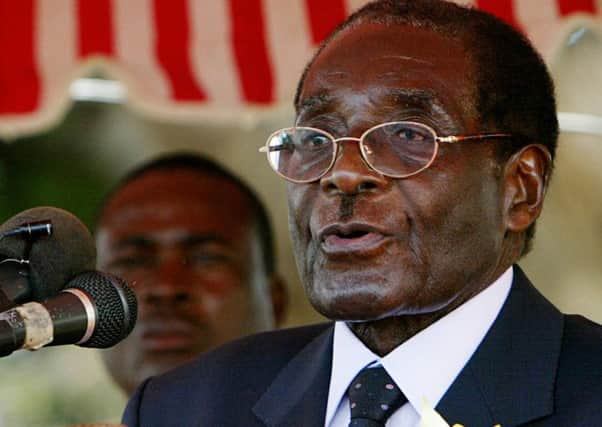Zimbabwe's stock market drops to just £79 worth of trading


Tuesday’s trading total, the lowest since the US dollar was introduced as the main currency in February 2009, is a stark illustration of the state of Zimbabwe’s battered economy, three years after Mugabe claimed victory once again in elections.
Yesterday only a handful of shares were traded in just a single counter: Barclays Bank of Zimbabwe. They traded unchanged at 1.5 cents (1p). Harare stockbrokers Lynton-Edwards confirmed that the lowest daily turnover since dollarisation was on February 19 2009, when a total value of just £23 changed hands.
Advertisement
Hide AdAdvertisement
Hide AdZimbabwe’s stock exchange has already lost 30.99 per cent of its share value since the beginning of the year.
The central bank’s announcement in May that it will start issuing its own banknotes or “bond-notes” in October has led to a huge drop in confidence in the banking sector, with locals queuing at banks to withdraw their cash as soon as it is deposited. Tens of thousands of Zimbabweans lost their savings in the pre-2008 crisis.
After years of repression, Zimbabweans this year started speaking out against Mugabe, who has been in power since 1980. Until now the president’s most loyal supporters, war veterans last week released an astonishing statement calling him “dictatorial” and saying they’d no longer back him. They were likely emboldened by a Harare pastor, Evan Mawarire, who launched an online protest using the hashtag #ThisFlag in April.
Faced with growing discontent, Mugabe is tightening his grip. Vice president Emmerson Mnangagwa has announced that 2,000 farmers would be forced to grow the staple maize “under strict supervision” to make up for food shortages. Five million Zimbabweans will need aid by early next year.
Farmers targeted under the new scheme will be given tools and fertiliser to grow the maize. Then theywill be forced to hand over their produce “to cover the machinery and inputs. Farmers will be allowed to keep anything above the required five tonnes of maize per hectare.